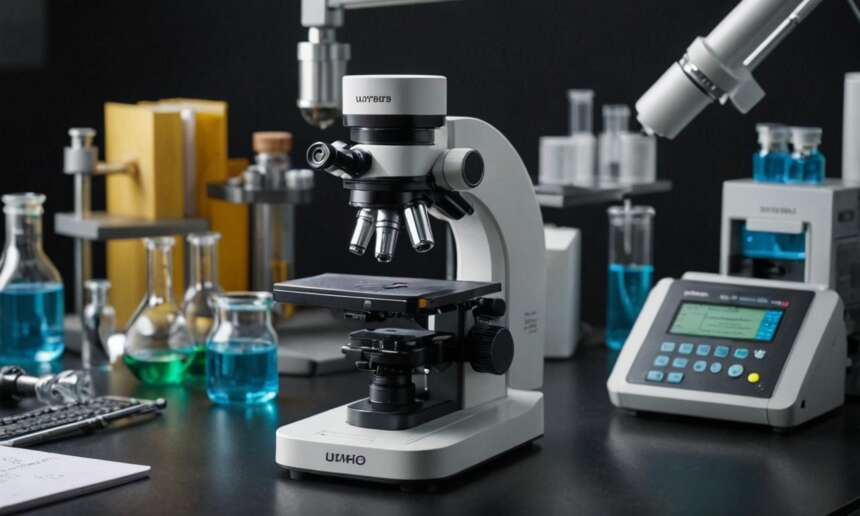If you aspire to become a toxicologist, you’re delving into a field critical to public health and safety. Toxicologists study the effects of chemicals and other substances on living organisms, including humans. This profession is multidisciplinary, combining elements of biology, chemistry, pharmacology, and environmental science. Here’s a comprehensive guide on how to embark on this rewarding career path.
Educational Requirements
Typically, a bachelor’s degree in a relevant field such as biology, chemistry, pharmacology, or toxicology itself serves as the foundation for a career in toxicology. However, many aspiring toxicologists pursue advanced degrees for better career prospects.
Undergraduate Studies
During your undergraduate studies, focus on coursework that builds a strong foundation in chemistry, biology, and mathematics. It’s also beneficial to gain laboratory experience through internships or research projects.
Advanced Degrees
Many positions in toxicology require a master’s or doctoral degree. Pursuing a graduate degree allows you to specialize further in areas such as environmental toxicology, clinical toxicology, or forensic toxicology. Research opportunities and thesis projects are integral components of advanced degree programs.
Gain Experience through Internships and Fellowships
Internships and fellowships provide invaluable hands-on experience in the field of toxicology. Seek out opportunities with government agencies, research institutions, pharmaceutical companies, or environmental organizations. These experiences not only enhance your skills but also expand your professional network.
Acquire Certification
While certification is not always mandatory, obtaining it can demonstrate your expertise and dedication to the field. Organizations such as the American Board of Toxicology offer certification exams for toxicologists at various career stages.
Stay Updated and Engage in Continuing Education
Toxicology is a rapidly evolving field, with new research and technologies constantly emerging. Stay abreast of the latest developments by attending conferences, workshops, and seminars. Engaging in continuing education ensures that you remain competitive and informed in your profession.
Develop Key Skills
Successful toxicologists possess a range of skills beyond technical knowledge. These include critical thinking, problem-solving, communication, and attention to detail. Cultivate these skills throughout your education and career to excel in the field.
Networking
Networking is crucial for career advancement in toxicology. Attend industry events, join professional organizations such as the Society of Toxicology, and connect with professionals in your field. Building strong relationships can lead to job opportunities, collaborations, and mentorship.
Seek Employment Opportunities
With your education, experience, and certifications in hand, start exploring job opportunities in various sectors such as government agencies, pharmaceutical companies, research institutions, consulting firms, or academia. Tailor your applications to highlight relevant skills and experiences.
Becoming a toxicologist requires dedication, education, and ongoing professional development. By following these steps and continually striving to expand your knowledge and skills, you can embark on a fulfilling career in this dynamic field.
Frequently Asked Questions
Here are some common questions aspiring toxicologists might have:
| Question | Answer |
|---|---|
| 1. Is a graduate degree necessary to become a toxicologist? | While a bachelor’s degree is typically the minimum requirement, many positions in toxicology, especially those in research or specialized fields, may require a master’s or doctoral degree. |
| 2. What are some areas of specialization within toxicology? | Toxicology offers various specializations such as environmental toxicology, clinical toxicology, forensic toxicology, industrial toxicology, and regulatory toxicology. |
| 3. How important is networking in the field of toxicology? | Networking is highly important for career advancement in toxicology. Building professional relationships can lead to job opportunities, collaborations, and mentorship. |
| 4. Are there any specific certifications that would benefit a toxicologist? | While certification is not always mandatory, obtaining credentials such as those offered by the American Board of Toxicology can demonstrate expertise and dedication to the field. |
| 5. What are some recommended ways to stay updated with advancements in toxicology? | Attending conferences, workshops, and seminars, subscribing to relevant journals, and participating in continuing education programs are excellent ways to stay informed about the latest developments in toxicology. |
Professional Ethics in Toxicology
Ethical considerations are paramount in toxicology, especially when conducting research or providing expert opinions. Toxicologists must adhere to ethical guidelines to ensure the integrity and reliability of their work.
Key ethical principles in toxicology include:
- Ensuring the welfare and safety of human subjects and laboratory animals involved in research.
- Transparent and unbiased reporting of research findings.
- Respecting confidentiality and privacy when handling sensitive data.
- Avoiding conflicts of interest and disclosing any potential conflicts.
By upholding ethical standards, toxicologists contribute to the credibility and trustworthiness of their profession.




